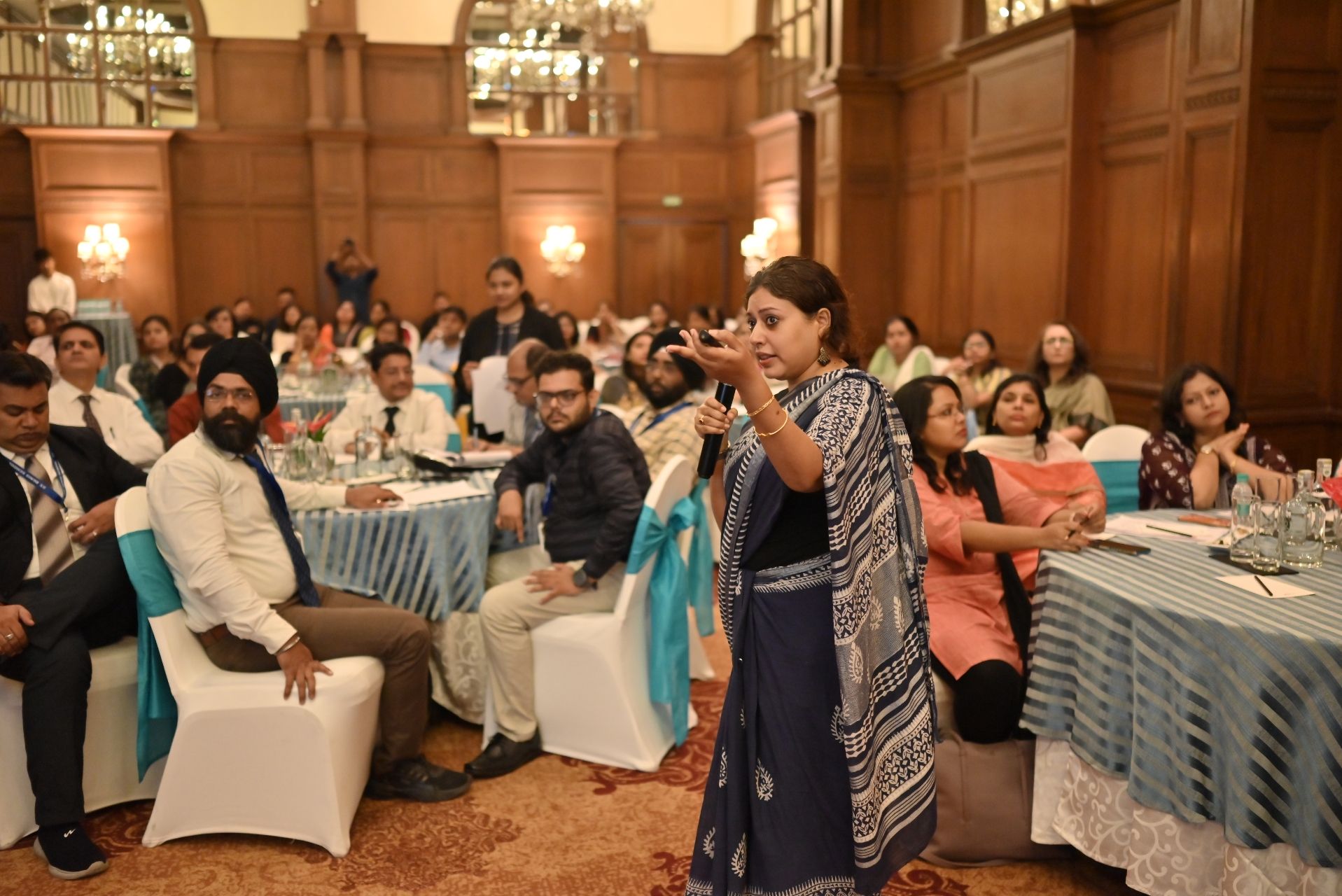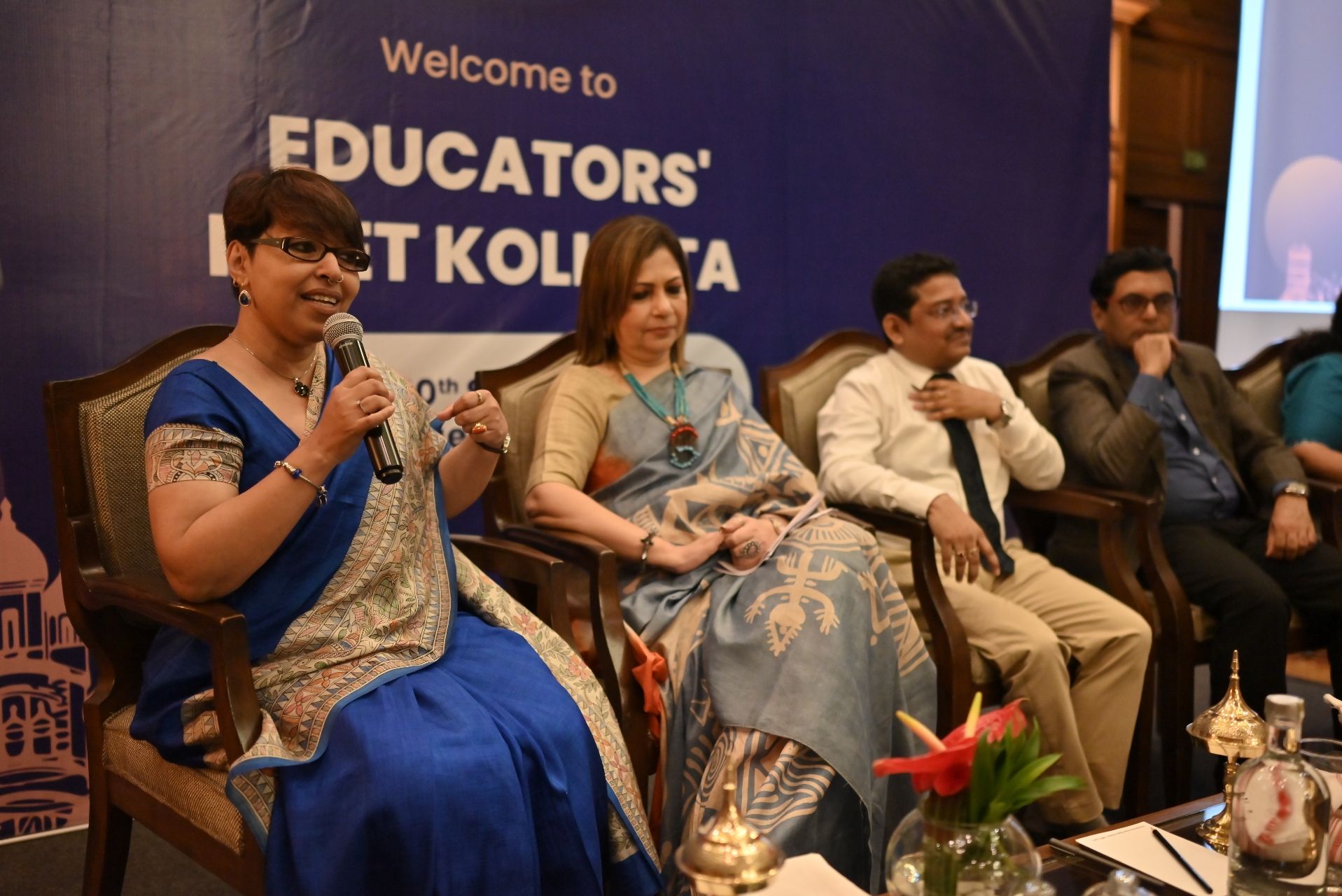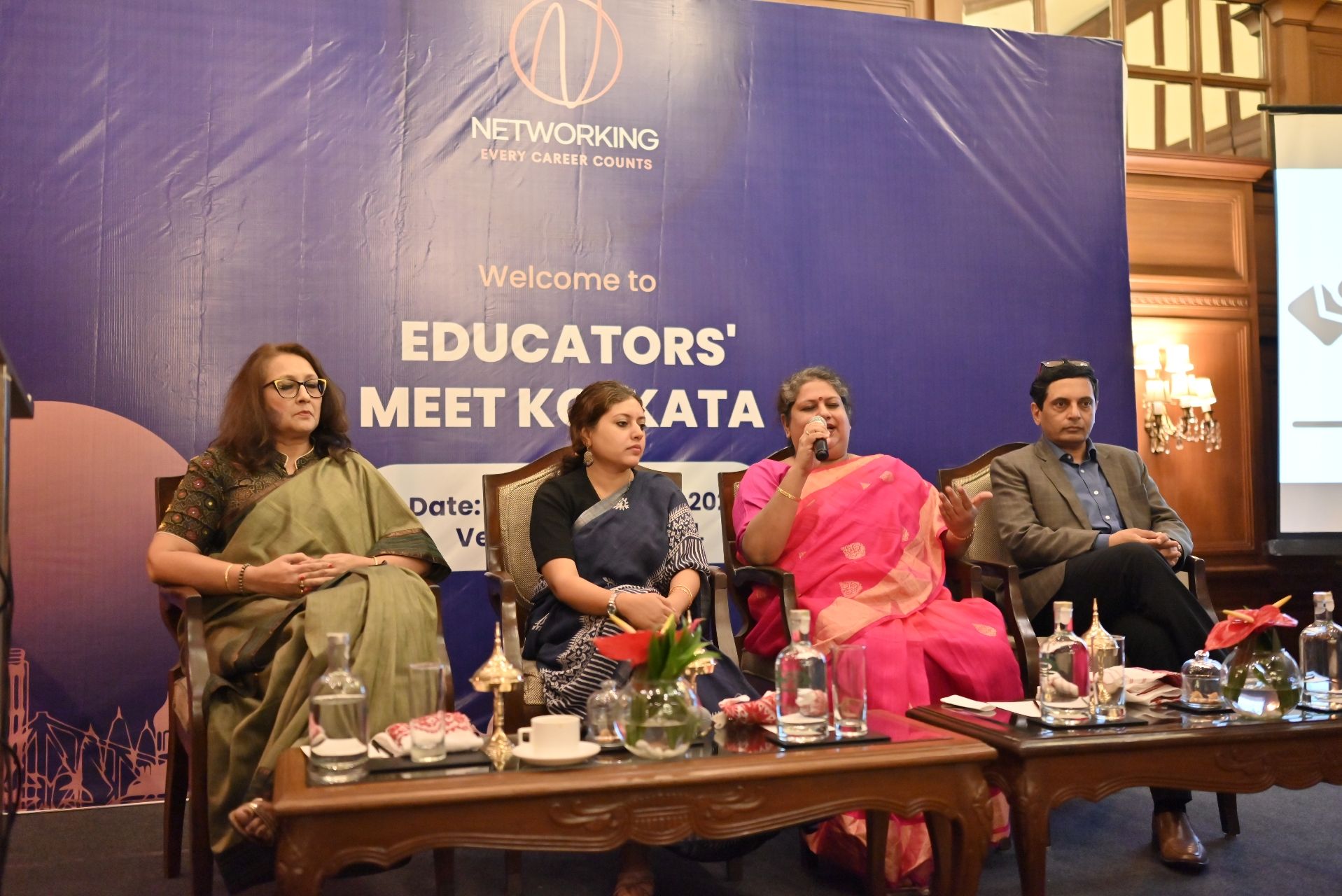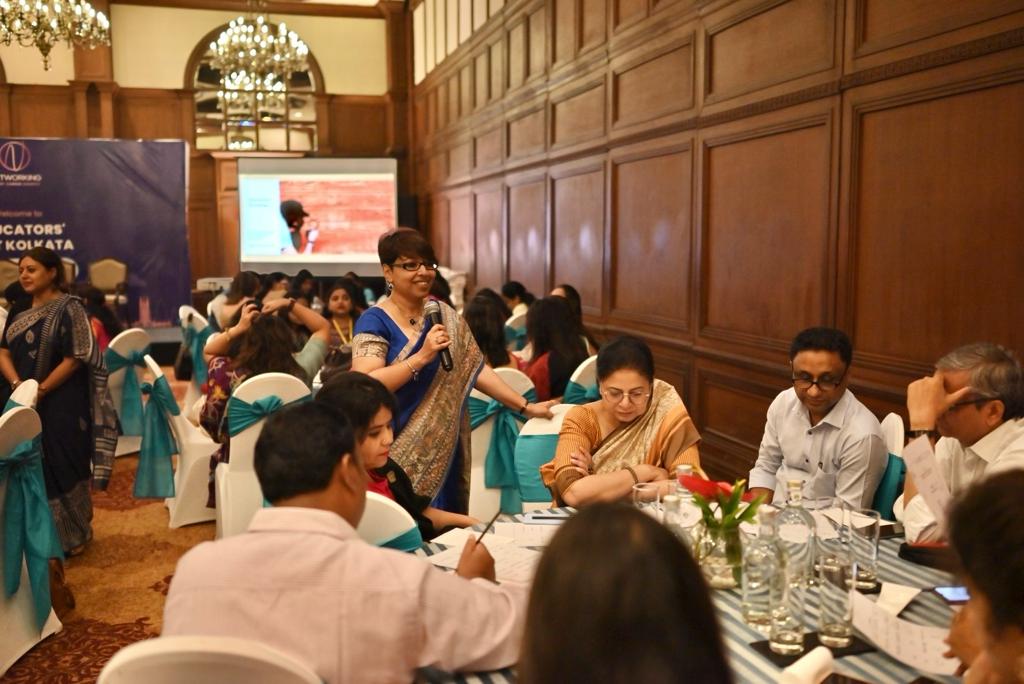- Empowering the Future of Education: SRMAP at Educators’ Meet October 27, 2023
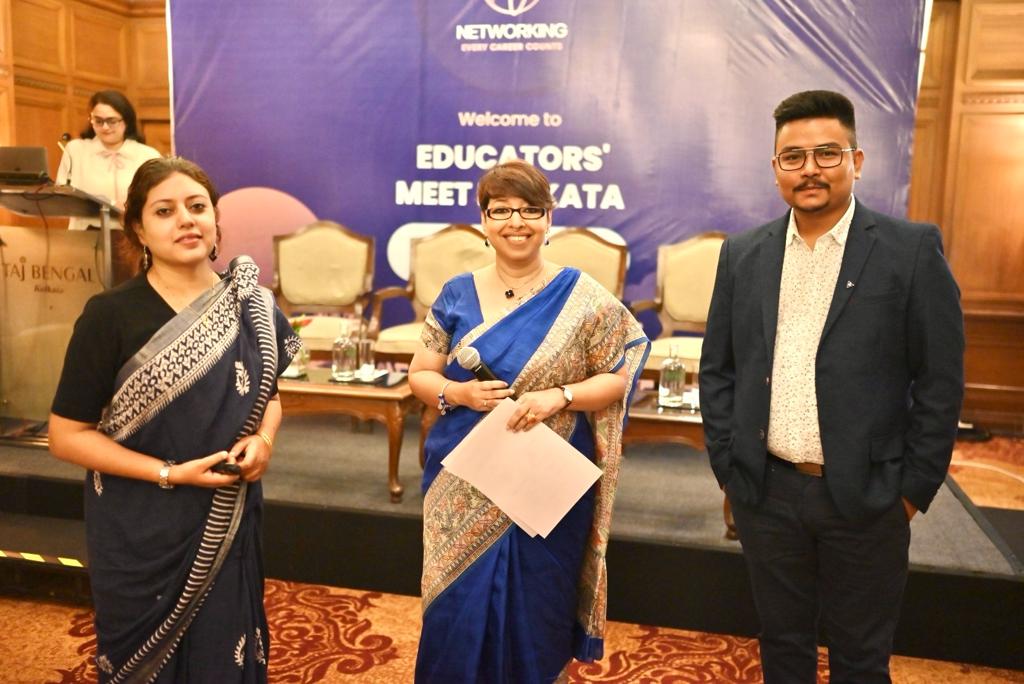
A transformative event in the field of education unfolded at the prestigious Taj Bengal Kolkata on September 30, 2023, as Networking, the event organiser, brought together visionaries, educators, and leaders from renowned institutions for a day of enlightening discussions. The symposium featured an engaging workshop on “Innovative Teaching Methods” and a panel discussion by acclaimed scholars from SRM University-AP and others on “Addressing Inclusivity in Education”.
SRM University-AP shared the stage with Mahindra University Hyderabad as presenters, sharing their insights into the dynamic world of academia. Their presentations provided a roadmap for educators to navigate the evolving landscape of teaching and learning. The event welcomed an illustrious audience, including the principals of some of Kolkata’s most esteemed schools, such as Don Bosco School, National English School, M P Birla Foundation Higher Secondary School, Ashok Hall Girls’ School, Sushila Birla Girls’ School, and Indus Valley World School and many more. This convergence of educational leaders was a testament to the growing need for innovation and inclusivity in the modern education system.
The workshop on Innovative Teaching Methods, led by SRM University-AP, aimed to empower educators with cutting-edge pedagogical tools and approaches. Presenters emphasised the need for adaptive learning, technology integration, and the nurturing of critical thinking skills. Attendees gained practical insights on how to create engaging, student-centered classrooms that inspire curiosity and creativity. The panel discussion on “Addressing Inclusivity in Education” was a powerful forum for introspection and collaboration. Renowned educator Dr Srabani Basu from SRM University-AP led the discourse on fostering an inclusive learning environment. The discussion revolved around strategies for accommodating diverse learning styles, ensuring equitable opportunities for all, and the role of education in shaping empathetic, well-rounded individuals.
A grand canvas was painted with discussions on “Preparing Students for Future Careers.” This event was more than just a meeting; it was a symphony of ideas, a platform for forging meaningful connections, and a springboard to a future of innovation and progress in education. The collaborative energy and innovative spirit that permeated the event offered a glimpse into the future of education. Participants left with a deeper understanding of the transformative power of innovative teaching methods and a collective commitment to make education accessible and inclusive for all. At SRM University-AP, we believe that events like these are pivotal in shaping the future of education. We are committed to embracing innovative teaching methods and fostering inclusivity to prepare our students for the dynamic and ever-evolving careers of the future.
Continue reading → - Know your style of writing May 4, 2022
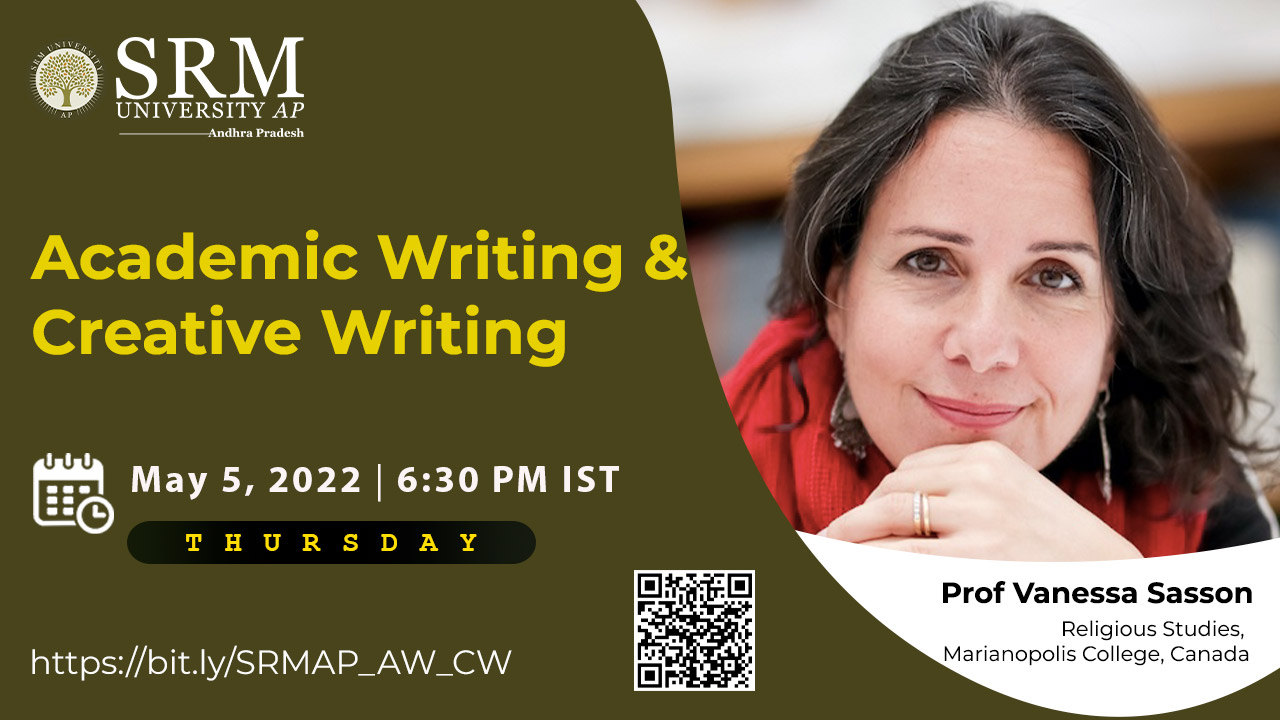
The art of writing can be branched out into different types depending upon the purpose of each piece of writing. You might have come across varied styles of writing such as creative writing, academic writing, technical writing and many more. Have you ever tried to deduce the difference between all these writing styles? Well, we offer you an informative session that will help you gather a better understanding of different styles of writing.
The Department of English has scheduled a webinar on the topic “Academic Writing & Creative Writing” under the theme “Language and Society” with Prof Vanessa Sasson as the keynote speaker.
Date: May 05, 2022
Time: 6.30 PM IST
Academic writing and creative writing seem to be pulling the act of writing and the writers in two different directions. A lot of writers, especially aspiring writers, tend to think of both genres as catering to very different audiences and fulfilling very different needs in very different contexts. Does that mean you can be only one and not the other? Do you have to choose? And how do you decide what to commit to? In this talk, Prof Vanessa Sasson will share her experience of writing in both capacities and discuss the joys and challenges of both.
About the Speaker
Vanessa R Sasson is a professor of Religious Studies in the Liberal Arts Department of Marianopolis College where she has been teaching since 1999. She is also a Research Fellow at the University of the Free State and a Research Member for CERIAS at UQAM. She has published widely as a scholar, with a number of academic books to her credit. Her most recent book was published by the University of Hawaii Press (2021) and is entitled, Jewels, Jewelry, and Other Shiny Things in the Buddhist Imaginary. Yasodhara and the Buddha (Bloomsbury, 2021) is her first novel. She is currently completing the sequel.
Join the Webinar to master the art of writing!
Continue reading →


